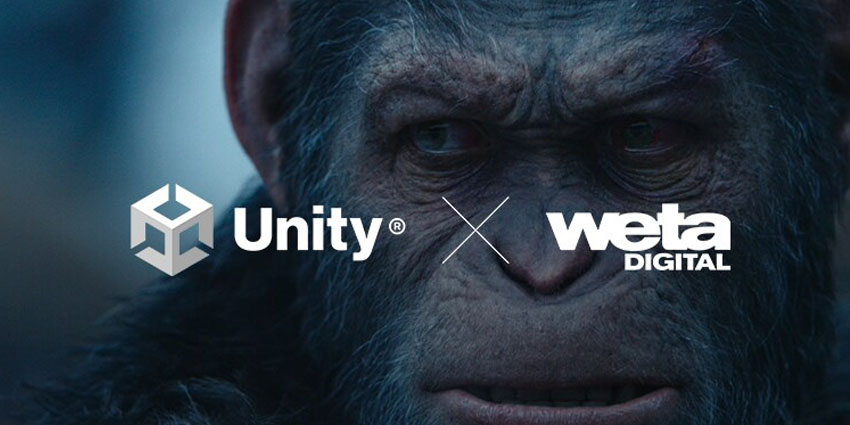Weta Digital, the visual effects (VFX) studio famously behind blockbuster films as Lord of the Rings, Avatar, and Planet of the Apes, has been partially sold to Unity Technologies for $1.6 billion USD, it was revealed this week.
Unity, which is one of the world’s largest gaming engines for hit titles such as Call of Duty: Mobile and Pokémon: Go, bought a part of the award-winning New Zealand-based studio, splitting the company into two divisions.
Weta Digital’s 15 years of pioneering mixed reality (MR) VFX technologies has built a host of new tools for content creators, including the following:
- Manuka, the flagship path-tracing renderer for generating final frames
- Gazebo, for viewing scenes in real time in any pipeline-attached application
- Loki, to provide physics-based VFX such as water, cloth, muscles, smoke, and others.
- Koru, a puppet-rigging system for multi-character action sequences
- Facial Tech, which offers high-end facial capture workflows and manipulation capabilities
- Barbershop, a tools suite for rendering and manipulating hair and fur
- Tissue, for rendering and creating anatomical character models and simulating muscle and skin
Both Sir Peter Jackson, Chairman and Co-Founder of Weta Digital and Prem Akkaraju, Weta Digital Chief Executive, will retain a majority ownership of WetaFX.
According to Sir Peter, Weta Digital’s tools would provide “unlimited possibilities” to create “the worlds and creatures that originally lived in our imaginations.”
He continued, stating,
“Together, Unity and Weta Digital can create a pathway for any artist, from any industry, to be able to leverage these incredibly creative and powerful tools. Offering aspiring creatives access to Weta Digital’s technology will be nothing short of game changing and Unity is just the company to bring this vision to life”
John Riccitiello, President and Chief Executive Officer of Unity, added he was “thrilled” to democratise the industry-leading tools which would “enable an entirely new generation of creators to build, transform, and distribute stunning RT3D content.”
Marc Whitten, Senior Vice President and General Manager for Unity Create Solutions, added,
“Weta Digital’s pipeline represents the most complete toolchain for 3D creation, simulation, and rendering ever created. The brilliance of Peter Jackson and the entire team at Weta Digital is incredibly inspirational to all of us at Unity”
Whitten explained in a blog post that Weta Digital aims to offer content creators high-performance tools to realise their projects and “put these world-class, exclusive VFX tools into the hands of millions of creators and artists around the world” to build the next generation of real-time 3D (RT3D) content.
He concluded: “Whatever the metaverse is or will be, we believe it will be built by content creators, just like you.”
Whitten’s reference to the Metaverse comes amid a massive surge in interest for the platform set to succeed the Internet, namely after Mark Zuckerberg, Meta Chief Executive and Founder, rebranded his former enterprise Facebook to communicate its new Metaverse ambitions.
Whitten explained how the acquisition was “just at the beginning” of a need for rich 3D content for video games, movies, and others, adding the company needed to do more to make such technologies and innovative production tools accessible to creators using cloud computing.
He concluded, citing a Māori proverb “Nā tō rourou, nā taku rourou ka ora ai te iwi”, meaning “with your bread basket and my bread basket, our people will thrive,” indicating group and industry-level collaboration would help realise the full potential of the rising Metaverse.
Weta Digital was founded in 1993 by Sir Peter and became famous for using VFX technologies to create characters such as Gollum in the Lord of the Rings, Neyriti from James Cameron’s Avatar, and Caesar from Planet of the Apes, among many others, along with characters from hit series Game of Thrones.







